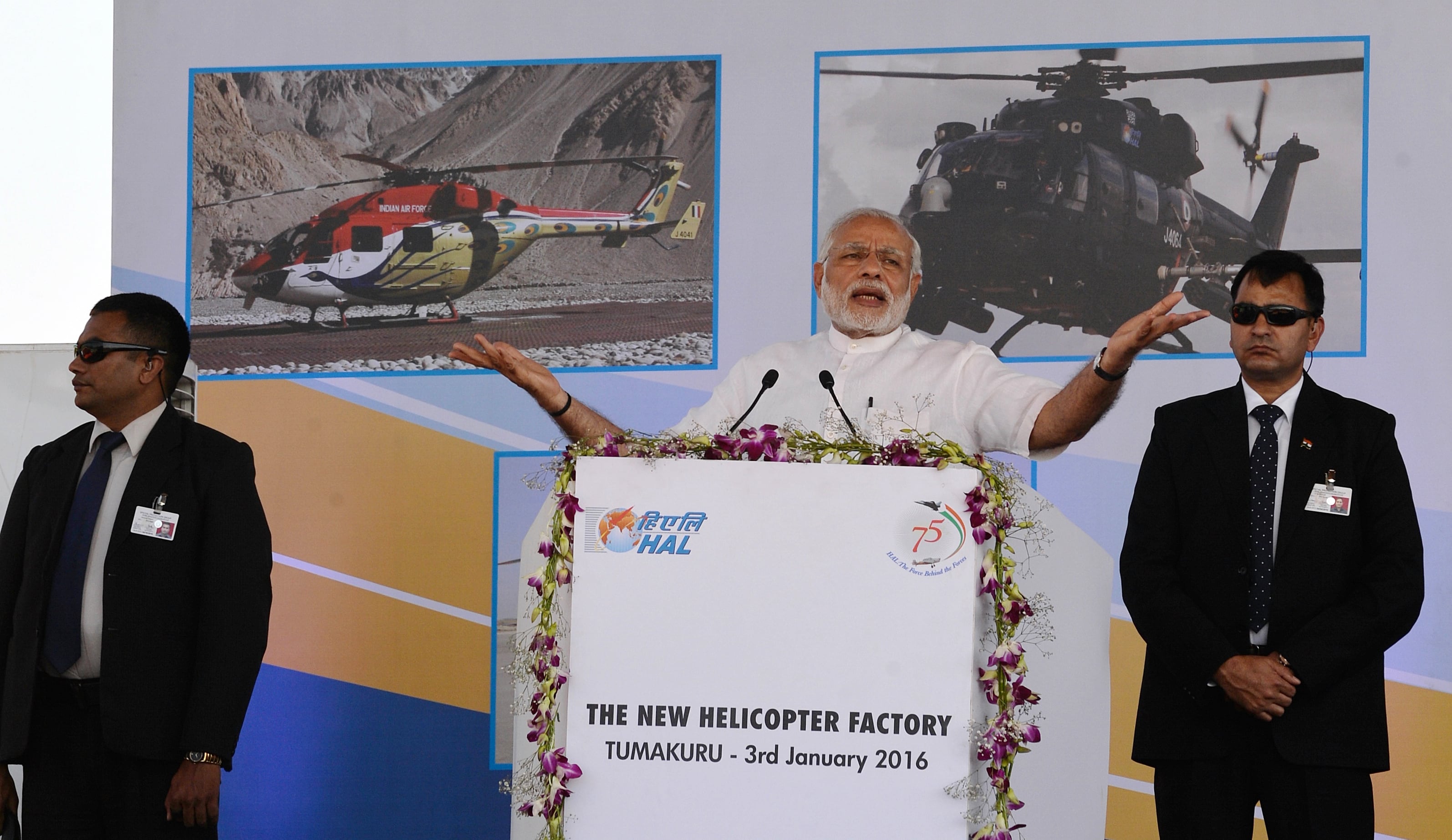NEW DELHI — To bolster self-reliance for its defense industrial base, India on Sunday released a list of 101 weapons and platforms that will be banned from import over the next seven years.
The list incorporates major armaments such as artillery guns, assault rifles, corvettes, sonar systems, transport aircraft, ammunition, radars, conventional diesel-electric submarines, communication satellites and shipborne cruise missiles.
In announcing the move, Defence Minister Rajnath Singh called it “a big step toward self-reliance in defense production in accordance with Prime Minister Narendra Modi’s ‘Atmanirbhar Bharat,’ ” or “Self-Reliant India.”
Singh added the decision will bring with it a great opportunity for the local defense industry to manufacture the items on the negative list by using domestic design and development capabilities.
“The embargo on imports is planned to be progressively implemented between 2020 to 2024,” the Ministry of Defense said in a statement. “The aim behind the promulgation of the list is to appraise the Indian defense industry about the anticipated requirements of the [Indian] armed forces so that they are better prepared to realize the goal of indigenization.”
RELATED

The items on the list, worth a total of $53.4 billion, are to be manufactured in India, with local companies as prime contractors. Of these, about $17.3 billion will be either Army or Air Force programs, and defense contracts worth $18.6 billion will be meant for naval programs. The MoD said these orders will be placed with domestic companies within the next five to seven years.
The domestic industry will now stand a better chance to compete among itself and cater to local demand, an MoD official told Defense News.
“Foreign-origin technology transfer will be key. However, the Indian companies will be in the driver’s seat,” the official said.
Domestic private companies have welcomed the government’s move, but some defense experts doubt change will come.
Baba Kalyani, chairman of Bharat Forge Limited, said this decision is a strategic step that will “propel the Self-Reliant India narrative and bolster the Indian defense equipment-manufacturing industry.”
He added that the growth of the domestic sector will lead to self-reliance, reduced expenditure on imports, the saving of foreign currency, job creation and the revival of consumption, and that it will get India closer to its goal of a $5 trillion economy.
Jayant Patil, senior executive vice president of India’s largest private defense company Larsen & Toubro, said the defense policy reforms will provide long-term visibility, which he said is needed to drive investment.
In contract, Vivek Rae, a former MoD chief of acquisitions, said the “gradual ban on imports of 101 weapons and platforms signals the strong intent of government to boost domestic defense production. However, some of these items are already made or assembled in India, and import content is also high. Therefore, business as usual will continue unless more orders are given to the private sector and import content reduced.”
Rae also noted the cost of items manufactured or assembled locally tends to be higher than the cost of imported items. The quality of locally produced materiel is also a concern for Rae.
The embargo may not adversely affect foreign original equipment manufacturers, as they can continue involvement in MoD acquisition programs, either by way of direct product orders or through technology transfer or collaboration with the Indian companies, in respect to items not covered by the list, according to Amit Cowshish, a former financial adviser for acquisition at the MoD.
It doesn’t matter whether an embargoed item is made by a joint venture or any other entity, so long as it is designed and developed in India, Cowshish added.
Indeed, an MoD official confirmed that foreign original equipment manufacturers now can set up joint ventures with a majority control up to 74 percent. The ventures would be considered Indian companies and thus be eligible for manufacturing the embargoed items, the official explained.
Vivek Raghuvanshi is the India correspondent for Defense News.








